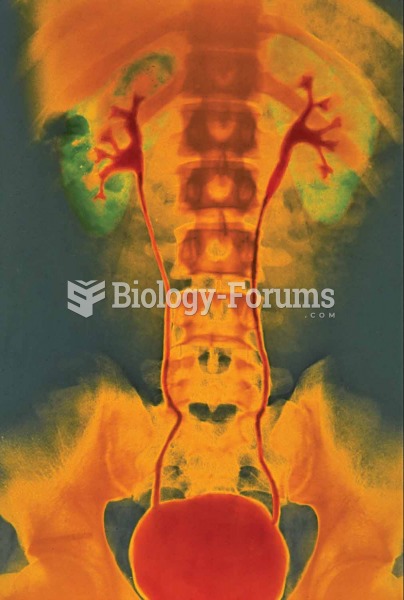|
|
|
Nearly 31 million adults in America have a total cholesterol level that is more than 240 mg per dL.
For high blood pressure (hypertension), a new class of drug, called a vasopeptidase blocker (inhibitor), has been developed. It decreases blood pressure by simultaneously dilating the peripheral arteries and increasing the body's loss of salt.
The use of salicylates dates back 2,500 years to Hippocrates’s recommendation of willow bark (from which a salicylate is derived) as an aid to the pains of childbirth. However, overdosage of salicylates can harm body fluids, electrolytes, the CNS, the GI tract, the ears, the lungs, the blood, the liver, and the kidneys and cause coma or death.
Asthma is the most common chronic childhood disease in the world. Most children who develop asthma have symptoms before they are 5 years old.
The people with the highest levels of LDL are Mexican American males and non-Hispanic black females.
 Pancreatitis. Inflammation of the pancreas may be the result of a bacterial infection, trauma, or ch
Pancreatitis. Inflammation of the pancreas may be the result of a bacterial infection, trauma, or ch
 Breast cancer. Notice the tumor growing within a lactiferous gland, which occurs in infiltrating duc
Breast cancer. Notice the tumor growing within a lactiferous gland, which occurs in infiltrating duc





